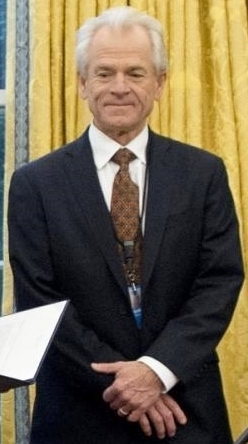In a July 20th editorial, the Wall Street Journal offered this pithy appraisal of one of the Trump administration’s top economic advisers on the negative consequences of the burgeoning U.S. trade war with the rest of the world: “Peter Navarro says the harm is a ‘rounding error.’ He’s out of touch.”
Navarro is an economist and director of the Office of Trade and Manufacturing Policy (OTMP), a White House agency created by President Trump. He is one of the rare economists to occupy a high-level advisory role in the White House. A Harvard University Ph.D., he is a stiff protectionist, which is rare among economists.
In June, the OTMP published a report titled “How China’s Economic Aggression Threatens the Technologies and Intellectual Property of the United States and the World.” It argues against the Chinese government’s rule-breaking mercantilism and industrial policy, which are deemed unfair, exploitative, and even extortionist. (Mercantilism includes both protectionism against imports and the promotion of exports.)
This raises the general question of what a national government’s trade policy should be toward a foreign country whose government pursues a mercantilist industrial strategy. A related issue is that Navarro himself was once a promoter of free markets and free trade (and was a contributor to this magazine in its early years). There is, of course, nothing wrong with changing one’s mind; if new evidence contradicts one’s theories, one should change one’s mind. But is today’s protectionist Navarro right, or the young, free-trade Navarro of a few decades ago?







